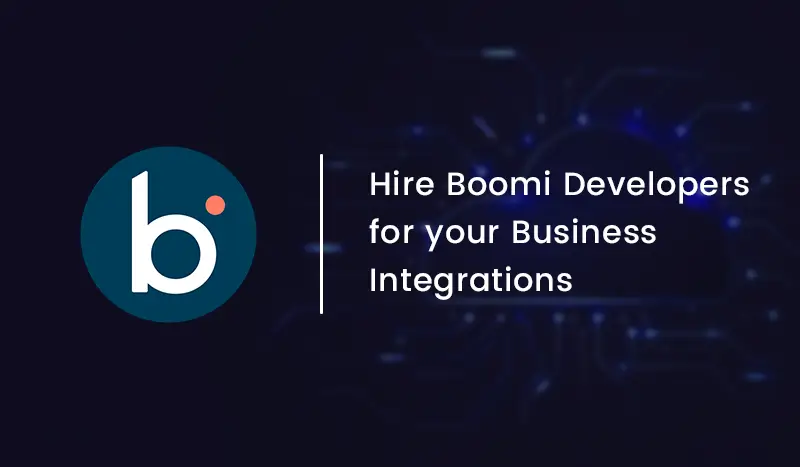What is Boomi Integration?
Boomi Integration Services is a cloud-based platform that allows businesses to connect various applications, systems, and data sources. Boomi middleware is a low-code development environment, it simplifies the integration process, reduces time and costs, and enhances productivity. It supports multiple integration scenarios, including application-to-application, business-to-business, and data synchronization, both on-premise and in the cloud. Its features include pre-built connectors, data mapping, process automation, real-time monitoring and analytics, and security and compliance measures.
What is the role of Boomi developers?
A Boomi developer’s job is to design, build, and deploy integrations utilising the Boomi integration platform. They collaborate with clients to understand their integration requirements and provide customized solutions that integrate various applications, data sources, and systems. Boomi developers must be highly technical, with expertise in programming languages, data mapping, and process automation. They must also be familiar with best practises for integration, security and compliance standards, and cloud-based technologies.
Boomi middleware platform has become increasingly popular among businesses of all sizes as it simplifies and streamlines integration processes. However, hiring Boomi developers can be a daunting task. The right candidate should possess the necessary skills and experience to design, develop, and deploy integrations that meet specific business requirements. It’s essential to look beyond technical skills and experience. Soft skills such as teamwork, problem-solving, adaptability, and creativity are equally important.
The key skills required to hire the right Boomi developers for your business.
Boomi atomsphere Knowledge:
Boomi developers should have a solid understanding of Boomi’s architecture, features, and components. They should be able to leverage the platform to design, develop and deploy integrations. Also, boomi developers should have experience in designing, deploying, and supporting integrations between different applications, databases, and systems.
Programming Languages:
A boomi developer should be proficient in programming languages such as Java, Groovy, and JavaScript. They should have experience writing custom code to meet the project requirements.
API Development:
Boomi developers should have experience with API development and be familiar with SOAP and RESTful APIs. They should also be able to work with various data formats such as XML and JSON.
Cloud Technologies:
Boomi is a cloud-based platform, so a boomi integration developer should have the passion to know about cloud technologies. They should have experience with cloud platforms such as Amazon Web Services (AWS), Microsoft Azure, and Google Cloud Platform.
Integration Connectors:
Boomi middleware platform has various connectors that enable integration with different applications and systems. Boomi developers should be proficient in using these connectors and have experience in connecting different applications.
Problem-Solving Skills:
Boomi developers should be excellent problem solvers, capable of troubleshooting issues related to integration design, development, and deployment. They should be able to work with other team members to identify and solve complex problems.
Boomi Certifications:
Boomi offers certifications that demonstrate a developer’s expertise in the platform. Boomi developers should possess Boomi Developer or Boomi Architect certifications to showcase their knowledge and understanding of Boomi’s capabilities.
Project Management Skills:
Boomi developers should possess project management skills, enabling them to effectively plan and manage integration projects from start to finish according to the clients requirements.
Conclusion
Hiring a Boomi developer with the right skill set is crucial for the success of your integration projects. At Oditek, we understand the importance of having experienced and certified Boomi developers on board. Our Boomi consultants and developers possess the technical expertise and knowledge of integration best practices required to deliver efficient and scalable integrations that meet your business needs.
Partner with Oditek for expert Boomi development services and take your integration projects to the next level. Contact Oditek today to learn more about the team of boomi consultants and developers to transform your business.







